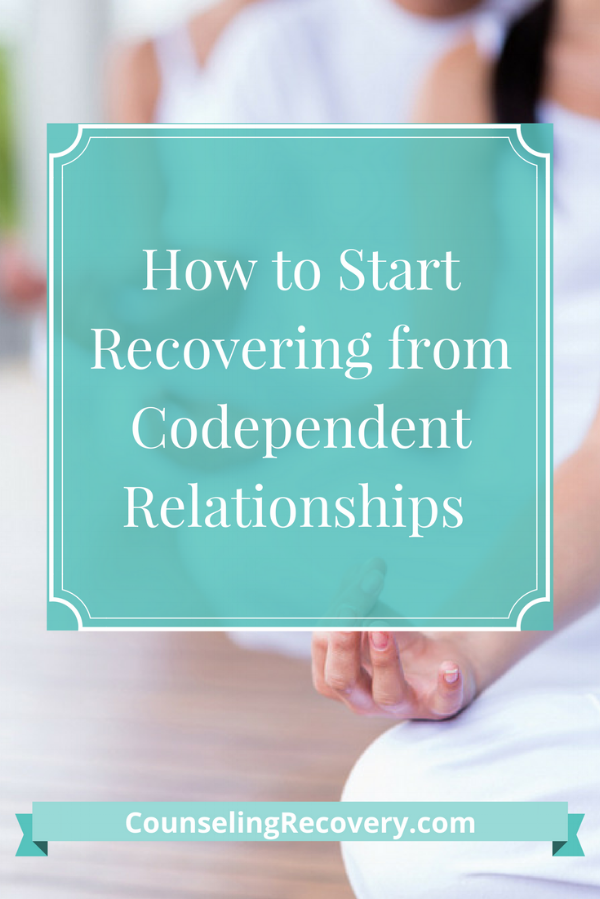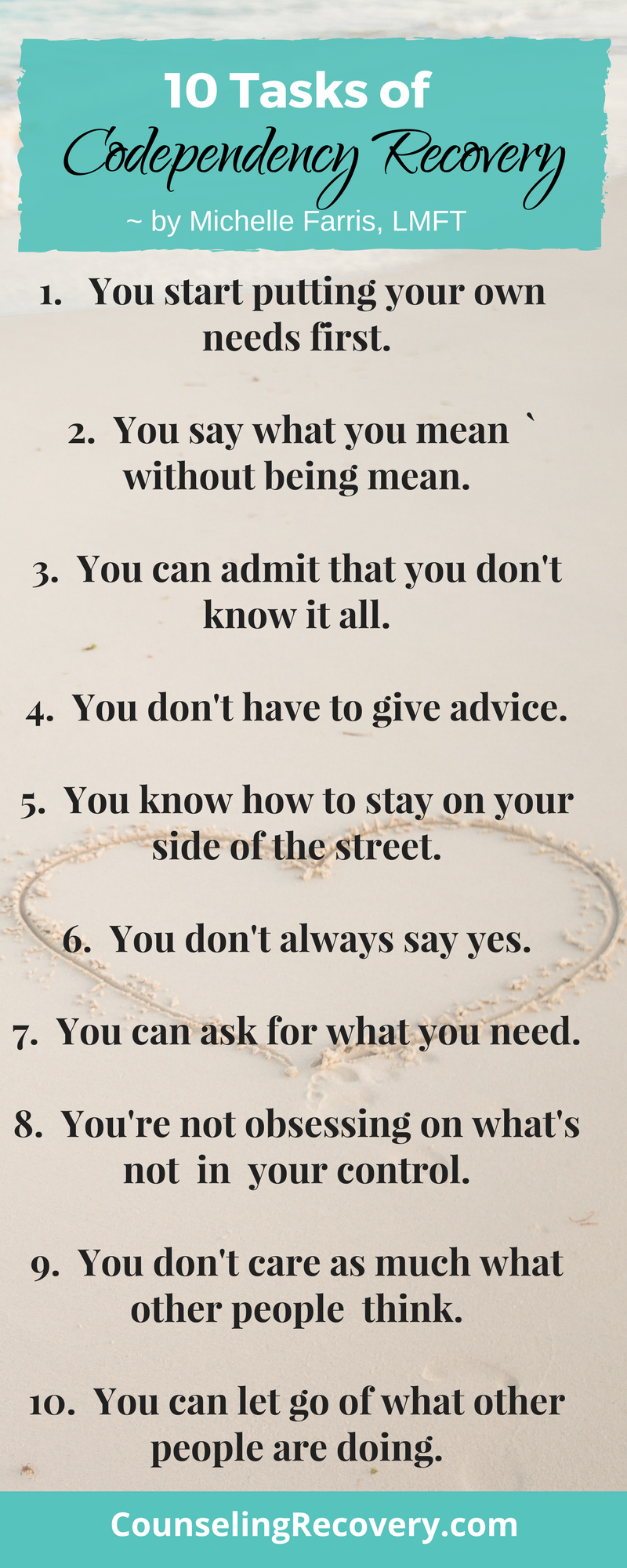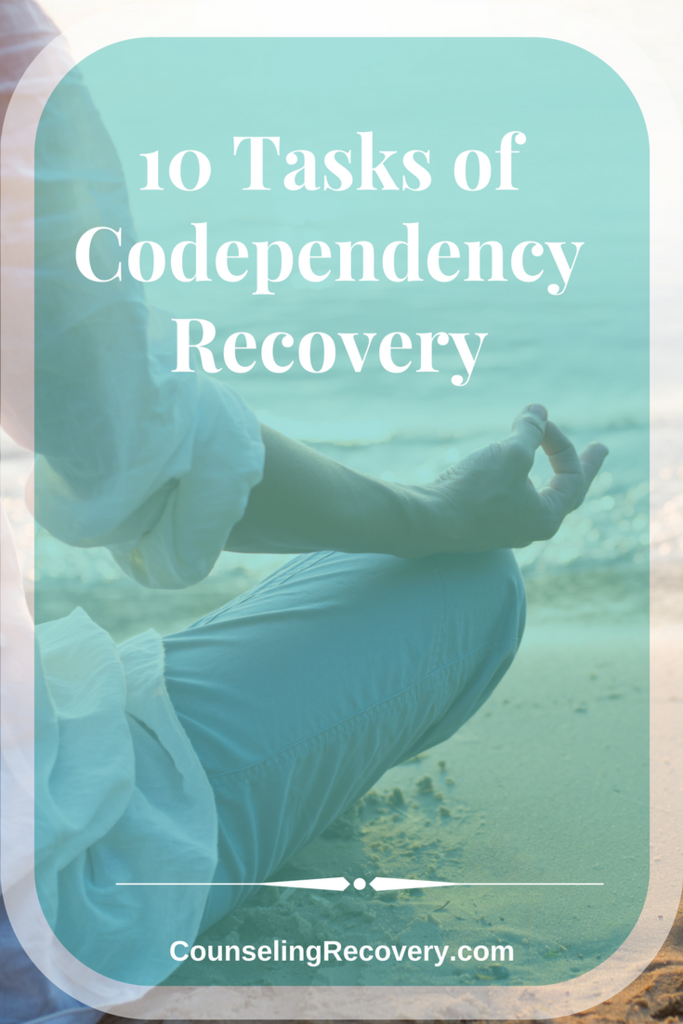How To Start Recovering From Codependent Relationships
If you struggle with people pleasing or setting boundaries, relationships become unhealthy and one-sided. The codependent person ends up doing all the heavy lifting.
When you are codependent, you want to be liked more than you want to risk being honest about what you really need. People pleasing triggers a negative pattern of self-neglect that is the hallmark of codependency.
But what is codependency?
Codependency is a complex issue, like a tree with many branches. Though there are several definitions out there, here’s a simple version.
Codependency happens when you lose yourself by focusing on others at your own expense. Seeking approval and staying connected becomes more important than self-care.
If you relate to codependency you likely have trouble:
Saying no or expressing a different opinion
Sitting still or "do nothing"
Putting your needs first
Struggle with controlling outcomes
Feeling like your worth comes from giving or helping
Getting trapped by a mountain of obligations
Admitting hurt or angry feelings
Detaching from other people's problems
Struggling secretly with resentment and feeling invisible
Attracting people with lots of problems
Why You Don't Think You Need Codependency Recovery
Codependency creates a deep sense of loneliness because you can't be yourself. You're so busy doing for others that your life is never really your own. What you think and feel takes a back seat because you’re so focused on taking care of everyone else.
In order to start codependency recovery, you have to "hit bottom" much like the alcoholic.
Unfortunately, it's harder, as a codependent person, to see your behavior as a problem. Because you're not the one out of control, you think you don’t need help.
You think that you have all the answers - and let's face it, when people keep coming to you for help, it proves your point. That's why it takes a lot for codependents to stop. You think that others can't survive without your help.
Unfortunately, you burn yourself out in the process.
Starting Codependency Recovery
Pain is the greatest motivator for instigating change. You don't seek change because you think you should. You seek change because you're tired of hurting. There comes a point when you're ready to do something different.
How do you start recovering from codependency?
Here are 10 tasks for recovering from codependency and start the process of recovery.
1. You start putting yourself first.
No longer are you willing to sacrifice yourself for everyone else. Putting yourself last creates a mountain of resentment that goes unexpressed. Not honoring your needs has to stop.
Instead of asking what they want, speak up about what YOU want. Include your two cents because what you feel and what you want counts!
2. You say what you mean without saying it mean.
Not expressing your feelings creates passive aggressive behavior. By denying that you're upset, feelings comes out later in sarcastic or hurtful comments. Over time, holding everything in becomes harder and harder until you explode.
When the pain of staying silent becomes too much, that pain forces you to speak up. You’re ready to risk being honest without being consumed with guilt.
3. You can admit that you don't know it all.
Admitting that you don’t know it all is actually the good news! You can take a deep breath because always having to be right is exhausting!
By trying to solve everyone else’s problems, it creates a pile of stress and anxiety that wipes you out in the process. You are beginning to realize that saying “I don’t know” provides significant relief.
4. You don't have to give advice.
This one can feel like torture but you can be supportive without giving advice. Instead, validate what's being said to show that you get it. Or, ask questions to show interest.
Most people want to feel understood, not fixed. That’s why giving advice can irritate people when they just need to be heard.
5. You can stay on your side of the street.
Letting go of what is not your responsibility is what defines detachment. It’s usually a turning point in codependency recovery.
That's when you can let someone else make their own choices without trying to control the outcome. If they are a functioning adult, let them deal with it.
Distract yourself with a project if that helps.
If thinking about letting go makes you anxious, you’re not alone. Letting go is one of the hardest things you will ever do. You want so badly to be helpful but sometimes letting go is the kindest option.
Click here to read 10 Ways to Let Go of Someone You Love.
6. You don't always say yes!
Saying no makes you more honest in relationships because there will be times when you’re too tired or upset to contribute and that’s okay. When you say yes all of the time, resentment inevitably creeps in and makes it hard to stay connected.
Realize that saying no is an important boundary for self-care. In codependency recovery, taking the risk of saying no means that your needs count. No one ever died from saying no!
7. You can ask for what you need.
By asking for what you need you will have a fighting chance of getting it! Part of the codependent struggle centers around doing everything yourself and not asking for help.
Your super-power is juggling many balls in the air but none of them are yours! Recovery is about moderation. You can still give as a recovering codependent but not when it hurts you.
Allowing yourself to have needs is another turning point in recovery. You deserve to have what you need no matter what messages were told you in childhood.
Worried that your relationships aren’t working out? Get my Relationship Checklists to help you see what’s working and areas of growth!
8. You stop obsessing about things that are not in your control.
Being a codependent means that your focus is constantly on other people. Helping, volunteering and/or rescuing them becomes a part of your DNA. Instead, practice bringing the focus back to you. Get in touch with how you feel and what you think. As a result, you will feel less stressed and more grounded.
When your energy is targeted on helping others, you lose touch with what you need. You find yourself feeling anxious because you feel like you have the weight of their world on your shoulders.
You deserve some peace and accepting the things you can’t control which includes other people helps!
9. You don't care as much what others think.
You start to realize how much time has been wasted on worrying, caring for, and helping others. Your identity gets wrapped up in doing for others rather than being yourself.
Letting go of what others think means that you're no longer thinking about them. Redirect your thoughts towards something you want to achieve! Pick a hobby or fulfill a dream that you’ve always wanted to do.
Sometimes, part of recovery is realizing that it’s okay to think of yourself. That self-care doesn’t mean being selfish it means your needs count too.
10. You can begin to let go of what others are doing.
By letting go of what others do your serenity comes back!
Trying to fix, advise or control other people's behavior - especially when there is an addiction, distracts you from solving your own problems.
Once you start living your own life, you can let go of what isn't yours, namely other people’s problems. As a result the other person has the opportunity to take care of themselves.
Final Thoughts
When trying to change a codependent behavior, being patient with yourself helps. Codependency is like a tree with deep roots. Target one specific behavior at a time and consider getting additional support to make the process easier.
I always recommend Alanon if you're struggling with codependency. It's a 12 step program that provides valuable relationship skills and emotional support to support your codependency recovery.
If you think codependency is impacting your relationships, you’re not alone. Consider codependency counseling. I’d be happy to set up a free 15 minute phone consultation.






